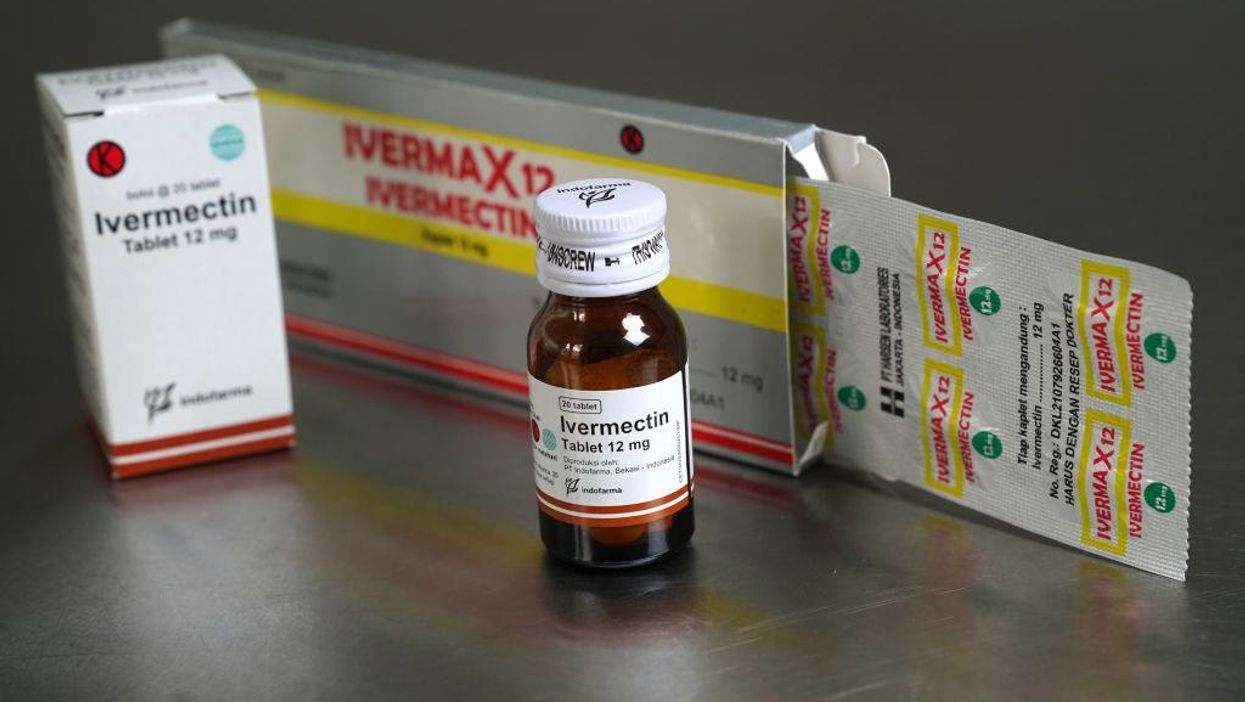
Dimas Ardian/Bloomberg via Getty Images

The University of Virginia Health System has joined a nationwide clinical study to evaluate ivermectin and fluvoxamine as possible treatments for mild-to-moderate COVID-19.
The study, called ACTIV-6, is funded by the National Institutes of Health and seeks to determine whether cheap, widely available, and FDA-approved drugs can be repurposed to treat the coronavirus. Researchers are testing several medications including ivermectin, an anti-parasitic drug that some claim is an effective early treatment or prophylaxis for COVID-19.
The FDA has repeatedly warned against using ivermectin as a COVID-19 therapeutic, along with the World Health Organization, the European Union's drug regulators, and the drug's manufacturer Merck. But some doctors in the U.S. and medical freedom advocates have demanded a right to try ivermectin and other unproven drugs to treat COVID-19, claiming some coronavirus patients have shown improvement after taking those off-label medications.
Patrick E. H. Jackson, MD, the principal investigator for the ACTIV-6 clinical trial at UVA Health, is hopeful that the study will provide "conclusive answers about drugs like ivermectin and fluvoxamine for the treatment of mild-moderate COVID-19."
"While the monoclonal antibodies and nirmatrelvir-ritonavir (Paxlovid) are wonderful to have, there is a clear need for more (and more broadly available) drugs to help patients around the world," Jackson told TheBlaze.
He explained that the ACTIV6 study includes participants who have mild to moderate COVID-19 symptoms and who are within seven days of the onset of symptoms. The study is a double-blind placebo controlled trial. COVID-19 Patients will be given a random drug or a placebo and researchers will collect information from them on the duration of their symptoms, as well as whether they are required to go to the hospital.
Most of the participants will be at home and will complete questionnaires to report their condition.
Previous studies examining ivermectin as a COVID-19 treatment have failed to prove it is an effective treatment. While laboratory studies show that ivermectin appears to have an anti-viral effect against COVID-19 and some early clinical trials seemed to support its use as a COVID-19 treatment, doctors and public health experts have identified serious errors in methodology in many of those studies.
An investigative report by the BBC found that more than a third of 26 major trials with ivermectin against COVID-19 had "serious errors or signs of potential fraud," and that the remaining studies did not show it was effective as a treatment for COVID.
More widely accepted studies do not support the use of ivermectin for patients with COVID-19.
Some proponents of ivermectin as a COVID-19 treatment have championed a more recent peer-reviewed study that concluded "regular use of ivermectin as a prophylactic agent was associated with significantly reduced COVID-19 infection, hospitalization, and mortality rates," based on an observational study of 159,561 residents ages 18 and over in Itajaí, Brazil.
A group called the Front Line COVID-19 Critical Care Alliance touted the study as the "world's largest study of ivermectin."
According to the study's authors, between July 7, 2020, and Dec. 2, 2020, 113,845 participants of a citywide program opted to take ivermectin while 45,716 did not. Researchers found that 3.7% of the group that took ivermectin tested positive for coronavirus while 6.6% of those that didn't take ivermectin tested positive.
The study's authors claimed that after adjusting for variables, there was a 67% reduction in COVID-19 hospitalizations and a 70% reduction in the mortality rate for ivermectin users.
Though those results appear to be good news, experts that did not participate in the study criticized its methodology.
Dr. Jackson noted that the Brazil study was a non-randomized observational study. "Such studies can really only ever be hypothesis generating - that is they can raise interesting questions to be studied further, but can't show a causal relationship between an intervention and an outcome (in that case, ivermectin and COVID infection/hospitalization/mortality)," he said.
"I'm very hopeful that trials like ACTIV6 and COVID-OUT will give us conclusive answers about drugs like ivermectin and fluvoxamine for the treatment of mild-moderate COVID-19," he added.